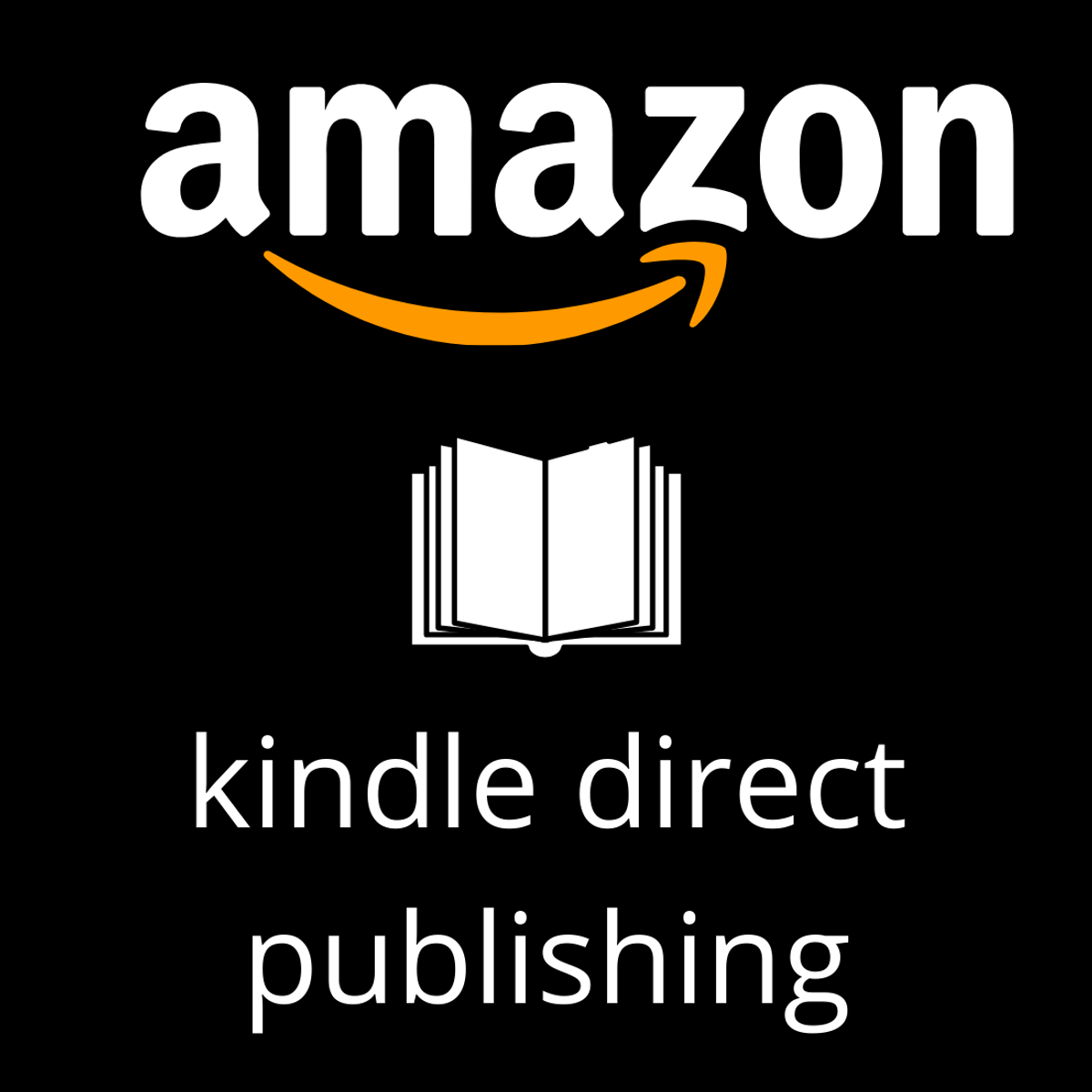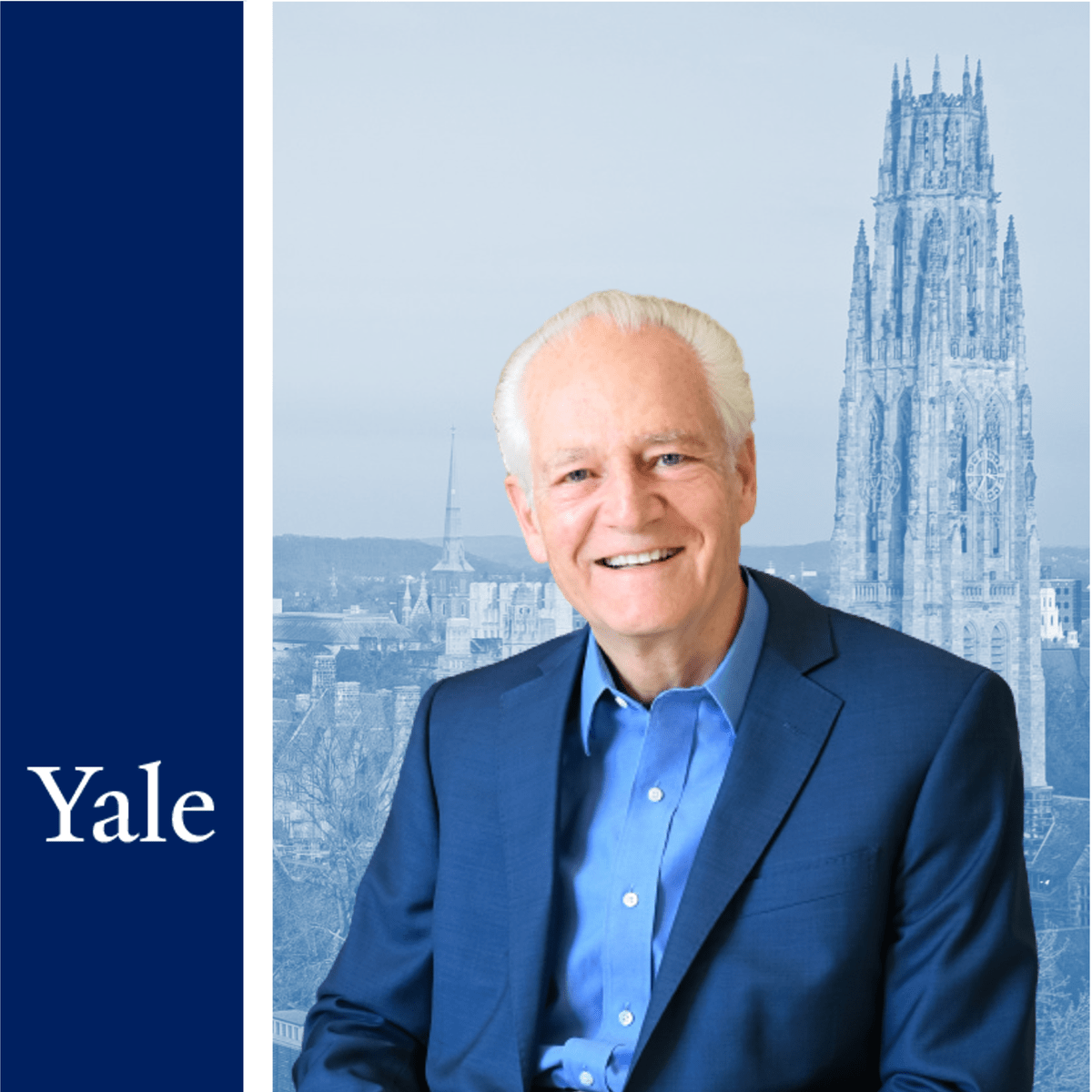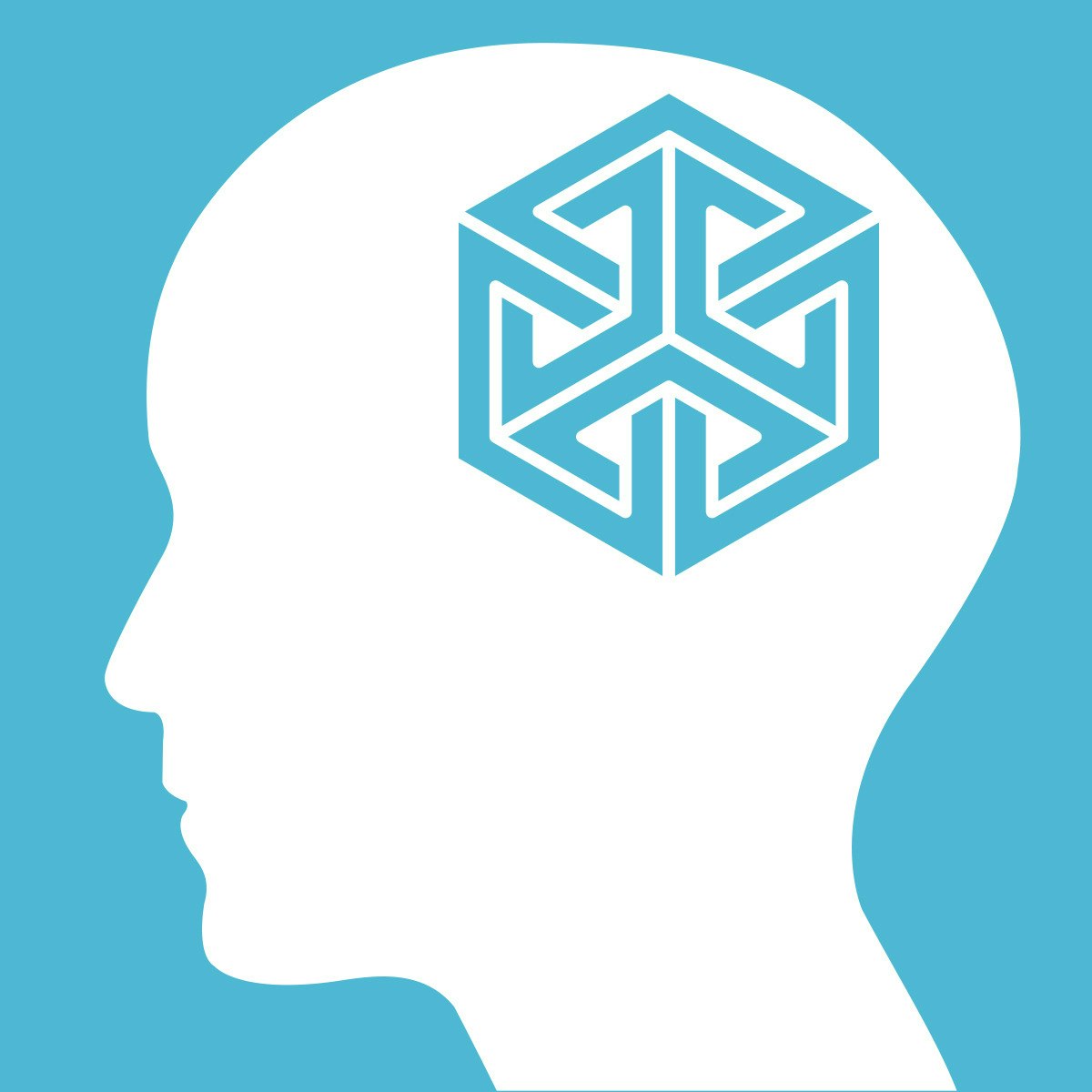Author
Becoming an Author: A Comprehensive Career Guide
An author is a creator of written works, such as books, articles, scripts, or other texts. This role involves not just the act of writing, but also research, editing, and often, navigating the complex world of publishing or self-distribution. Authorship spans a vast spectrum, from crafting intricate fictional worlds to explaining complex technical subjects or sharing personal narratives.
Embarking on a career as an author can be immensely rewarding, offering the chance to share unique perspectives, tell compelling stories, and connect with readers on a deep level. It's a path that demands creativity, discipline, and resilience. Many find the process of shaping ideas into polished prose, exploring the depths of human experience, or building entirely new realities from scratch to be profoundly engaging and fulfilling.
Overview of the Author Career
What Does a Professional Author Do?
Professional authorship centers on the creation of original written content intended for publication or distribution. This encompasses a wide range of activities beyond simply putting words on paper. Authors conceptualize ideas, conduct research, structure narratives or arguments, write drafts, and meticulously revise their work. The scope is broad, covering everything from novels and poetry to non-fiction books, academic papers, technical manuals, and website content.
The daily life of an author often involves solitary work, requiring significant self-discipline and time management. It's not just about inspiration; it's about consistent effort, meeting deadlines (whether self-imposed or external), and engaging in the iterative process of writing and rewriting. Many authors also spend time on activities related to publishing and promotion, such as working with editors, agents, and marketing teams.
Ultimately, an author's goal is to communicate effectively with a specific audience, whether that's to entertain, inform, persuade, or evoke emotion. Success often hinges on the ability to craft compelling content that resonates with readers and achieves the author's intended purpose.
Key Roles and Forms of Authorship
Authorship isn't monolithic; writers often specialize. Fiction authors create imaginative stories, developing characters, plots, and settings within genres like fantasy, romance, mystery, or literary fiction. Non-fiction authors focus on factual content, covering topics such as history, science, biography, self-help, or current events, requiring rigorous research and clear exposition.
Technical writers specialize in explaining complex processes or products, often creating manuals, help guides, or documentation for software, machinery, or scientific procedures. Ghostwriters write content credited to someone else, such as autobiographies for celebrities or articles for executives, adapting their voice and style to match the credited author.
Other forms include playwrights who write scripts for stage productions, screenwriters who create scripts for film and television, and poets who craft verse. Each role demands distinct skills and approaches to writing, research, and audience engagement.
For those looking to hone their skills in specific writing forms, online courses provide targeted instruction. Whether you aim to write fiction, non-fiction, or explore other niches, structured learning can accelerate your development.
Traditional Publishing vs. Self-Publishing
Authors typically pursue one of two main paths to publication: traditional publishing or self-publishing. Traditional publishing involves submitting a manuscript (often via a literary agent) to established publishing houses. If accepted, the publisher handles editing, cover design, printing, distribution, and marketing, paying the author royalties and often an advance payment.
Self-publishing, facilitated by platforms like Amazon Kindle Direct Publishing (KDP), gives authors full control over the entire process. They manage editing, design, publication, marketing, and pricing themselves or hire freelancers. While requiring more entrepreneurial effort, self-publishing offers higher royalty rates per sale and faster time-to-market.
Choosing between these paths depends on an author's goals, resources, and willingness to handle the business aspects of publishing. Some authors even pursue hybrid careers, using both models for different projects. Both routes require a high-quality manuscript and significant promotional effort to reach readers.
Understanding the nuances of self-publishing is crucial for authors considering this path. Online courses can offer practical guidance on navigating platforms and marketing strategies.
Common Misconceptions About Being an Author
Several myths surround the author's life. One common misconception is that writing is purely about waiting for inspiration to strike. In reality, successful authorship relies heavily on discipline, routine, and consistent work, even when creativity feels elusive.
Another myth is the "overnight success" story. While some books achieve rapid popularity, most authors build their careers gradually through persistent effort, facing rejection and honing their craft over many years. Financial stability can also be misrepresented; many authors supplement their writing income with other work, especially early in their careers.
Finally, the idea that authors work entirely alone is often untrue. While writing itself is often solitary, the journey typically involves collaboration with agents, editors, designers, marketers, and fellow writers. Building a network and seeking feedback are vital parts of the process.
Types of Authors and Specializations
Genre Specialists: Finding Your Niche
Many authors build careers by specializing in specific genres. This allows them to develop deep expertise in the conventions, tropes, and reader expectations of a particular field. Examples include fantasy authors creating elaborate magical systems, academic authors contributing specialized research to their disciplines, or biographers meticulously chronicling lives.
Focusing on a niche can help authors cultivate a dedicated readership and build a recognizable brand. Whether writing science fiction, historical romance, thrillers, children's literature, or cookbooks, specialization requires understanding the specific craft elements and market dynamics relevant to that area.
Developing expertise in a chosen genre often involves extensive reading within that field, studying successful examples, and practicing specific techniques. Exploring different genres can also help writers find their unique voice and preferred style.
These courses offer focused training in popular genres and age categories, helping writers master the specific demands of their chosen niche.
Emerging Formats and Platforms
The publishing landscape is constantly evolving, creating new opportunities for authors. Audiobooks continue to grow in popularity, requiring authors (or narrators) skilled in vocal performance and audio production. Serialized digital content, published incrementally on platforms like Kindle Vella or Substack, allows authors to engage readers over time and build community.
Interactive narratives, webcomics, and content for virtual or augmented reality represent other emerging formats where storytelling skills are valuable. Authors adaptable to new technologies and reader consumption habits can find innovative ways to share their work and connect with audiences.
Understanding these new formats often requires exploring digital tools and platforms. Learning about content management systems, basic multimedia production, or platform-specific best practices can open doors to these evolving opportunities.
Hybrid Roles: Beyond the Book
Many authors diversify their careers by taking on hybrid roles. Author-educators leverage their expertise by teaching writing workshops, university courses, or creating online learning materials. This path provides additional income streams and allows them to share their passion for writing.
Author-influencers build strong online presences through blogs, social media, or newsletters, using their platform to connect with readers, promote their work, and sometimes engage in brand partnerships. Others might become consultants, speakers, or develop related products based on their writing.
These hybrid roles often require skills beyond writing, such as teaching, public speaking, marketing, or entrepreneurship. Developing a personal brand and engaging with audiences directly are often key components of success in these areas.
Traditional vs. Digital-First Authorship
The rise of digital platforms has created pathways for authors who prioritize online channels. A traditional author typically focuses on print books distributed through established publishers, though they often engage online as well. A digital-first author might prioritize e-books, audiobooks, blogs, or serialized content, often self-publishing or working with digital-only imprints.
Digital-first authors often need strong skills in online marketing, social media engagement, and understanding analytics to reach their audience directly. They might build email lists, run targeted advertising campaigns, or leverage platforms like Patreon or Substack to monetize their work.
While the lines can blur, understanding these different models helps authors align their strategies with their goals. Both paths require quality writing, but the emphasis on specific skills, platforms, and business models can differ significantly.
Core Skills for Successful Authors
Mastering Writing Techniques
Fundamental writing skills form the bedrock of an author's career. This includes understanding narrative structure—how to craft compelling plots with rising action, climax, and resolution. Developing a unique authorial voice and tone that resonates with the target audience is also crucial.
Authors must master techniques like character development, creating believable and engaging personalities that drive the story. Proficiency in writing evocative descriptions, crafting realistic dialogue, and managing pacing are essential for immersing readers in the narrative world.
Continuous practice and study are key to honing these techniques. Reading widely, analyzing the work of other authors, participating in writing groups, and seeking constructive feedback are invaluable parts of the learning process.
Dedicated courses can help writers systematically build these foundational craft elements. Focusing on specific aspects like character, setting, or plot allows for targeted skill development.
Research and Fact-Checking
Effective research skills are vital, particularly for non-fiction authors, but also important for fiction writers aiming for authenticity. This involves identifying reliable sources, gathering information efficiently, and synthesizing findings into the written work.
For non-fiction, meticulous fact-checking is paramount to maintain credibility and accuracy. Authors must verify names, dates, statistics, and claims. Even fiction writers often research historical periods, locations, or technical details to make their stories more believable and immersive.
Developing strong research methodologies includes knowing how to use libraries, databases, archives, and online resources effectively. Interviewing skills can also be crucial for gathering firsthand accounts or expert insights. Proper citation and avoiding plagiarism are essential ethical considerations.
Digital Literacy and Online Presence
In today's publishing world, digital literacy is indispensable. Authors often need basic familiarity with Content Management Systems (CMS) like WordPress for managing author websites or blogs. Understanding Search Engine Optimization (SEO) basics can help make their online content more discoverable.
Building and maintaining an online presence through a website, blog, or social media is often necessary for connecting with readers and promoting work. This requires skills in content creation, audience engagement, and potentially interpreting website or social media analytics.
Authors may also use digital tools for writing, collaboration, and organization. Familiarity with cloud storage, communication platforms, and potentially project management software can streamline the writing and publishing process.
Adaptability and Editing Skills
The ability to adapt content for different media formats is increasingly valuable. An author might need to repurpose a book chapter into a blog post, adapt a story for an audio script, or condense ideas for social media promotion.
Strong self-editing skills are crucial. Authors must learn to objectively evaluate their own work, identify weaknesses in structure, clarity, grammar, and style, and revise effectively. Understanding the different stages of editing (developmental, line editing, copyediting, proofreading) helps authors improve their manuscripts before submission or publication.
Adaptability also extends to receiving and incorporating feedback from agents, editors, or beta readers. Being open to constructive criticism and willing to make substantial revisions is a hallmark of professional authorship.
These resources focus on the crucial skills of editing and adapting your writing for different contexts.
For guidance on style and grammar, these books are classic references.
Formal Education Pathways for Authors
High School Foundations
Aspiring authors can begin building a strong foundation in high school. Courses in English literature are essential for developing critical reading skills, understanding literary devices, and exploring different genres and styles. Taking creative writing electives, if available, provides early practice and feedback.
Engaging with subjects like history, social studies, and sciences can broaden an author's knowledge base, providing rich material for future writing, whether fiction or non-fiction. Developing strong research and analytical skills through various coursework is also beneficial.
Extracurricular activities like joining the school newspaper, literary magazine, or debate club offer practical experience in writing, editing, and communication. Reading widely across various genres and authors is perhaps the single most important activity during this stage.
Undergraduate Studies: Creative Writing and Beyond
Many aspiring authors pursue a bachelor's degree. A major in Creative Writing offers focused study on writing techniques, genre conventions, and workshop-based critiques. Degrees in English Literature provide a deep understanding of literary history and critical analysis, which can inform one's own writing.
However, authors come from diverse academic backgrounds. Degrees in Journalism, Communications, History, Philosophy, or any specialized field can provide valuable subject matter expertise, particularly for non-fiction or genre fiction writers. Strong writing skills are essential regardless of the major.
Online courses can supplement formal education, allowing students to explore specific writing interests or gain practical skills not covered in their degree program. OpenCourser offers a vast catalog where students can browse literature and writing courses to complement their studies.
These courses offer university-level instruction suitable for undergraduates or anyone seeking a structured approach to creative writing fundamentals.
Master of Fine Arts (MFA) in Creative Writing
An MFA is a terminal degree focused intensely on the craft of writing. These programs typically involve workshops where students critique each other's work, literature seminars, and the completion of a substantial creative thesis (like a novel manuscript or collection of stories/poems).
Pros of an MFA include dedicated time to write, mentorship from established authors, building a network of peers, and potentially gaining teaching credentials. It can provide structure, accountability, and intensive feedback crucial for artistic development.
Cons include the significant cost and time commitment (usually 2-3 years), the potential for workshop environments to stifle unique voices, and the fact that an MFA does not guarantee publication or financial success. It's a valuable path for some, but not a prerequisite for becoming a successful author.
Doctoral Studies and Academic Authorship
For those interested in academic careers or highly specialized non-fiction, a PhD might be relevant. PhD programs emphasize rigorous research, critical theory, and the production of scholarly work, such as dissertations and peer-reviewed articles.
Authorship within academia focuses on contributing original research and analysis to a specific field. While some PhD programs exist in Creative Writing, combining creative work with critical study, most PhDs prepare individuals for careers as researchers and university professors.
This path requires a deep commitment to scholarly inquiry and a specific academic discipline. The writing style is typically formal and specialized, distinct from most trade publishing aimed at a general audience.
Author Career Progression
Starting Points: Gaining Experience
Few authors start by publishing a bestseller immediately. Many begin by gaining experience in related fields. Roles like editorial assistant, copywriter, content writer, journalist, or blogger provide practical writing experience, industry insights, and income while honing craft.
Freelancing allows writers to build a portfolio across different formats and clients. Contributing short stories or articles to literary magazines, online publications, or local newspapers helps build credentials and visibility. Consistent writing practice and seeking publication opportunities, even small ones, are key early steps.
Engaging with the writing community through workshops, conferences, or online groups provides valuable connections, feedback, and learning opportunities. Building relationships with other writers, editors, and publishing professionals can be beneficial long-term.
This course can help aspiring writers navigate the early stages of their journey, from idea generation to completing a draft.
Mid-Career Milestones: Publication and Representation
A significant milestone for many authors is achieving their first major publication, often a book deal with a traditional publisher or successfully launching a self-published work. This typically follows extensive writing, revision, and often, numerous rejections.
Securing representation by a literary agent is another key step for authors pursuing traditional publishing. Agents champion authors' work to publishers, negotiate contracts, and provide career guidance. Finding the right agent often involves researching agents who represent similar genres and sending out query letters and manuscript samples.
Mid-career authors focus on building a readership, producing subsequent works, and potentially expanding into different formats or genres. Establishing a consistent writing practice and navigating the business aspects of authorship become increasingly important.
These courses focus on the process of drafting and structuring a novel, key steps towards achieving publication.
Advanced Opportunities and Growth
Established authors may pursue opportunities like developing a book series, which can create a loyal fanbase and consistent income stream. Success can also lead to adaptation deals, where books are turned into films, television shows, or other media.
Advanced career stages might involve achieving bestseller status, winning prestigious literary awards, or becoming influential voices in their field. Some authors leverage their platform for speaking engagements, consulting, or developing related merchandise or ventures.
Continued growth often requires adapting to market changes, exploring new creative directions, and maintaining relevance with readers. Mentoring emerging writers or contributing to the literary community can also be fulfilling aspects of a mature authorial career.
These books offer insights into achieving success and navigating the writing life.
Transitioning to Related Fields
The skills developed as an author are transferable to various related careers. Many authors transition into roles such as editor, literary agent, publisher, or writing coach, utilizing their deep understanding of craft and the industry.
Teaching creative writing at the high school, university, or community level is another common path. Others leverage their expertise in communication and storytelling for careers in marketing, public relations, grant writing, or corporate communications.
The ability to research, synthesize information, communicate clearly, and meet deadlines makes authors valuable candidates in many fields. An authorial background can serve as a strong foundation for diverse professional pathways, offering flexibility throughout one's career.
Financial Realities of Authorship
Understanding Royalties and Advances
Authors' income, particularly from traditional publishing, often involves advances and royalties. An advance is an upfront payment from a publisher against future royalty earnings. Authors don't receive further royalty payments until their book sales have earned back the amount of the advance (known as "earning out").
Royalty rates vary based on format (hardcover, paperback, e-book, audio), sales volume, and negotiation power, but typically range from 5-15% of the book's cover price (or net receipts for e-books). Self-published authors generally receive higher royalty percentages (e.g., 35-70% on platforms like Amazon KDP) but bear all production and marketing costs.
Income can be unpredictable, with sales fluctuating based on market trends, promotional efforts, and seasonality. Very few authors earn substantial advances, and many books do not earn out their initial advance.
Ancillary Income Streams
Given the variability of book sales, many authors rely on multiple income streams. Speaking engagements, teaching workshops or courses, freelance writing or editing, consulting, and selling subsidiary rights (like translation or film rights) can provide significant supplemental income.
Some authors develop related products, such as merchandise, online courses based on their expertise, or paid newsletters. Building a strong author platform and personal brand can open doors to these diverse opportunities.
Diversifying income sources provides greater financial stability and reduces reliance solely on unpredictable book royalties. It requires an entrepreneurial mindset and skills beyond writing itself.
Market Variability and Earning Potential
Earning potential varies significantly based on genre, format, publishing route, and author platform. Commercial fiction genres like thrillers, romance, and fantasy often have larger markets than literary fiction or poetry. Non-fiction books tied to current trends or perennial needs (like business or self-help) can also perform well.
According to the U.S. Bureau of Labor Statistics, the median annual wage for writers and authors was $73,900 in May 2023, but this figure includes various types of writers (technical, content, etc.) and doesn't fully capture the wide income disparity specifically among book authors. Many published authors earn far less, often below the poverty line, solely from their book writing.
Self-publishing success stories exist, but average earnings remain modest for most. Building a sustainable career often takes years of consistent output, audience building, and business acumen.
Long-Term Financial Planning
Authors need robust financial planning strategies due to fluctuating income. This includes diligent budgeting, setting aside funds for taxes (especially crucial for freelancers), and establishing emergency savings.
Investing for retirement is critical, as authors often lack employer-sponsored plans. Understanding options like IRAs or solo 401(k)s is important. Seeking advice from financial planners familiar with the challenges of freelance or variable income can be highly beneficial.
Treating authorship as a business, tracking income and expenses carefully, and making informed decisions about contracts, rights, and investments are essential for long-term financial health in this career.
Digital Tools for Modern Authors
Writing and Collaboration Software
Modern authors rely on a variety of digital tools. Specialized writing software like Scrivener offers features for organizing complex projects, managing research, and structuring long-form works like novels or non-fiction books. Distraction-free editors help writers focus by minimizing interface clutter.
Cloud-based platforms like Google Docs enable seamless collaboration with editors, co-authors, or beta readers, allowing real-time commenting and version tracking. Grammar and style checkers provide automated assistance in polishing prose.
Choosing the right tools depends on individual workflow preferences and project needs. Experimenting with different software can help authors find the combination that best supports their writing process and productivity.
Analytics and Audience Engagement
Authors, especially those self-publishing or managing their own platforms, benefit from understanding basic analytics. Website analytics (e.g., Google Analytics) show traffic sources, popular content, and audience demographics. Social media platforms provide insights into post engagement and follower growth.
Email marketing platforms offer metrics on open rates, click-through rates, and subscriber engagement for author newsletters. Sales dashboards on platforms like Amazon KDP provide real-time sales data and royalty reports.
Using these metrics helps authors understand their audience, refine marketing strategies, and make informed decisions about content and promotion. It allows for a more data-driven approach to building an author career.
AI-Assisted Writing Tools
Artificial intelligence (AI) writing assistants, like ChatGPT or specialized tools, are becoming increasingly prevalent. These tools can help with brainstorming ideas, generating outlines, drafting content, summarizing research, or even suggesting alternative phrasing.
Ethical considerations are paramount when using AI. Issues include maintaining originality, avoiding plagiarism, ensuring factual accuracy (as AI can "hallucinate" information), and disclosing AI usage appropriately. AI can be a powerful assistant, but critical thinking and human oversight remain essential.
Authors need to stay informed about the capabilities and limitations of these tools and develop best practices for integrating them responsibly into their workflow, if they choose to use them.
Digital Rights Management (DRM)
Digital Rights Management (DRM) refers to technologies used to control access to and usage of digital content, including e-books and audiobooks. Publishers and self-publishing platforms often employ DRM to prevent unauthorized copying and distribution.
Authors should understand the basics of DRM, including its potential benefits (piracy protection) and drawbacks (potential limitations for legitimate users, compatibility issues). Decisions about whether or not to apply DRM to self-published works involve weighing these factors.
Understanding copyright law and how it applies to digital works is fundamental for authors navigating the online landscape. Protecting intellectual property is crucial, and DRM is one tool, among others like clear copyright notices and registration, used in this effort.
Global Author Markets
Publishing Industries Around the World
The publishing landscape varies significantly across different regions. Major markets like the US, UK, Germany, China, and Japan have large, established industries with complex ecosystems of publishers, agents, distributors, and retailers. Other regions may have smaller markets, different genre preferences, or unique distribution challenges.
Understanding the specific dynamics of target markets is crucial for authors seeking international reach. This includes knowing key publishers, popular genres, pricing norms, and cultural nuances that might affect a book's reception.
Networking internationally, attending book fairs like Frankfurt or London, and working with agents or publishers experienced in foreign rights can help authors navigate these diverse markets.
Translation and Cross-Cultural Adaptation
Reaching international audiences often requires translation. Securing translation deals typically involves selling foreign rights, often handled by an agent or publisher's rights department. The quality of translation is critical for preserving the author's voice and intent.
Beyond direct translation, cross-cultural adaptation might be necessary. This could involve adjusting titles, cover designs, cultural references, or even content to resonate better with readers in a different cultural context. Sensitivity and collaboration with local experts are key.
The market for translated works varies by country and language. Some markets are more receptive to translations than others, and certain genres travel better internationally. Researching translation market trends can inform an author's global strategy.
International Copyright Considerations
Copyright protection is territorial, meaning rights are governed by the laws of specific countries. International treaties, like the Berne Convention, provide baseline protection across signatory nations, but nuances exist.
Authors and their representatives need to understand how to secure and enforce copyright in different territories where their work is published or distributed. This includes registering copyrights where appropriate and clearly defining rights in contracts for publication and translation.
Navigating international copyright complexities often requires legal expertise or guidance from experienced agents or publishers specializing in foreign rights management.
Emerging Markets and Trends
Publishing markets in regions like Latin America, Southeast Asia, and parts of Africa are growing, driven by demographic trends, increasing literacy rates, and expanding digital access. These emerging markets present new opportunities for authors.
Understanding reader preferences, distribution channels (including mobile platforms), and pricing sensitivities in these markets is key. Local partnerships and culturally relevant content are often crucial for success.
Keeping abreast of global publishing trends, technological adoption (like mobile reading), and demographic shifts can help authors identify and capitalize on opportunities in these dynamic and evolving markets.
Author Career Sustainability
Managing Workload and Preventing Burnout
The demanding and often solitary nature of authorship can lead to burnout. Sustainable careers require effective workload management, setting realistic goals and deadlines, and establishing healthy work habits. This includes scheduling regular breaks, maintaining boundaries between work and personal life, and recognizing signs of overwork.
Cultivating interests outside of writing, maintaining social connections, and prioritizing physical and mental health are crucial for long-term well-being. Joining writing communities or critique groups can provide support and combat isolation.
Developing strategies for managing creative blocks, handling rejection resiliently, and celebrating small successes along the way helps maintain motivation and prevent burnout over the long haul.
Protecting Intellectual Property
An author's primary asset is their intellectual property (IP)—their written works. Understanding and protecting copyright is fundamental to a sustainable career. This involves knowing your rights, registering works with copyright offices where applicable, and using proper copyright notices.
Carefully reviewing publishing contracts, particularly clauses related to rights grants, territories, duration, and reversion, is essential. Seeking legal advice or working with knowledgeable agents helps ensure authors retain appropriate control and benefit fairly from their IP.
Vigilance against plagiarism and unauthorized use of work, especially online, is also necessary. Knowing how to issue takedown notices or pursue legal remedies protects the value of an author's creative output.
Continuous Learning and Adaptation
The publishing industry and reader preferences are constantly evolving. Authors need a commitment to continuous learning to stay relevant. This includes tracking genre trends, exploring new writing techniques, and staying updated on technological advancements affecting writing, publishing, and marketing.
Attending workshops, conferences, reading industry publications, and engaging with online writing communities facilitate ongoing professional development. Experimenting with new formats or genres can also keep creativity fresh and open new avenues.
Adaptability is key. Being willing to learn new skills, adjust strategies based on market feedback, and embrace change helps ensure career longevity in a dynamic field. Lifelong learning is not just beneficial; it's often essential for sustained success.
OpenCourser's Learner's Guide offers valuable resources for structuring self-directed learning and staying motivated.
These books offer timeless advice on the writing process and maintaining creativity.
Navigating Market Shifts
Events like the COVID-19 pandemic demonstrated how rapidly market conditions can shift. Bookstore closures impacted print sales, while e-book and audiobook consumption saw increases. Authors needed to adapt marketing strategies and potentially pivot focus.
Technological disruptions, changes in retail landscapes (like the rise and fall of certain chains or platforms), and evolving reader habits continuously reshape the industry. Authors who monitor these shifts and adjust their approaches proactively are better positioned for long-term sustainability.
This might involve diversifying into digital formats, strengthening direct-to-reader sales channels, adapting promotional tactics, or even exploring different types of writing work during challenging periods.
Frequently Asked Questions
What qualifications do I need to become an author?
There are no mandatory formal qualifications to become an author. Talent, dedication, strong writing skills, and persistence are more critical than specific degrees. Many successful authors do not have formal writing qualifications.
However, education can be beneficial. Degrees in Creative Writing, Literature, Journalism, or related fields provide structured training, feedback, and industry knowledge. Workshops, online courses, and extensive reading also contribute significantly to skill development.
Ultimately, a compelling manuscript and the ability to connect with readers are the most important qualifications. Building a portfolio of quality writing is essential, regardless of educational background.
These courses offer structured pathways for developing core writing skills, accessible regardless of formal background.
How long does it typically take to get published?
The timeline from completing a manuscript to publication varies widely. For traditional publishing, after finishing the manuscript, authors typically spend months querying literary agents. If successful, the agent then spends months submitting the manuscript to publishers.
If a publisher acquires the book, the process from contract signing to bookshelf can take another 12-24 months, involving editing, design, production, and marketing planning. Rejections are common at every stage, potentially adding years to the process.
Self-publishing offers a much faster route, potentially allowing publication within weeks or months of manuscript completion. However, achieving visibility and sales still requires significant time investment in marketing and platform building.
This guide offers practical advice often found in foundational writing books.
Is being an author a financially stable career?
Financial stability as an author can be challenging and unpredictable for many. While some authors achieve significant financial success, the majority earn modest incomes from book sales alone, often requiring supplementary work.
Income depends heavily on factors like publishing route (traditional vs. self), genre popularity, sales volume, contract terms (advances/royalties), and the author's ability to market their work. Building a sustainable income often takes years of consistent effort and multiple published works.
Diversifying income streams through teaching, speaking, freelancing, or related activities is common and often necessary for financial stability. Aspiring authors should approach the career with realistic financial expectations.
How is Artificial Intelligence impacting writing careers?
AI is beginning to impact writing careers in various ways. AI tools can assist with tasks like brainstorming, research, drafting, editing, and translation, potentially increasing productivity for some writers.
However, concerns exist about AI generating low-quality content flooding the market, potential copyright issues related to AI training data and output, and the possibility of AI displacing certain types of writing jobs (e.g., basic content creation, technical documentation).
The long-term impact is still unfolding. Authors may need to adapt by focusing on uniquely human skills like deep creativity, emotional resonance, complex narrative structure, and distinct authorial voice, or by learning to leverage AI effectively and ethically as a tool.
Are there regional differences in author compensation?
Yes, significant regional differences exist in author compensation. Factors include the size and maturity of the local publishing market, average book prices, standard royalty rates, the prevalence of advances, and government support or grants for authors.
Authors in large, established markets like North America or Western Europe may have access to higher potential advances and larger readerships compared to those in smaller markets. However, competition is also fiercer.
Cost of living variations also impact the real value of author earnings in different regions. Currency exchange rates affect international royalty payments. Understanding local market conditions is important for authors operating globally.
Can I transition into authorship from another career?
Absolutely. Many authors transition from other careers, bringing valuable life experience, subject matter expertise, and professional skills to their writing. Fields like journalism, law, medicine, tech, business, and academia often provide rich material and relevant skills (research, analysis, clear communication).
The transition requires dedication to learning the craft of writing, understanding the publishing industry, and committing significant time to writing and revision. Networking with other writers and industry professionals can ease the transition.
Patience and persistence are key, as building an authorial career takes time. Leveraging existing skills and knowledge while developing new writing competencies is a common path for successful career changers.
Consider exploring courses on Career Development or specific writing skills relevant to your background on OpenCourser.
Helpful Resources
Navigating the path to becoming an author involves continuous learning and leveraging available resources. Below are links to organizations and information sources that can be valuable for aspiring and established writers.
- The Authors Guild: An advocacy organization for published authors in the United States, offering resources on contracts, copyright, and industry issues.
- Bureau of Labor Statistics - Writers and Authors: Provides occupational outlook information, including salary data and job growth projections (note: covers a broad range of writers).
- Poets & Writers: Offers resources for creative writers, including databases of literary magazines, contests, grants, and small presses.
- OpenCourser Literature Courses: Explore a wide range of courses on literature, writing craft, and publishing.
- OpenCourser Learner's Guide: Find tips on self-directed learning, staying motivated, and making the most of online courses.
Becoming an author is a journey that demands passion, persistence, and a dedication to craft. While challenges exist, the rewards of sharing stories and ideas with the world can be immense. Whether pursuing fiction or non-fiction, traditional or self-publishing, the path requires continuous learning and adaptation. Embrace the process, seek out knowledge, connect with fellow writers, and most importantly, keep writing.






































